Q-Chem Webinar 71: Development of NEO Methods in Q-Chem 6 | |
| August 16, 2023 | |

| Nuclear quantum effects such as zero-point energy and nuclear density delocalization are important in a variety of applications in chemistry and biology. The nuclear-electronic orbital (NEO) approach is a multicomponent quantum chemistry method capable of capturing significant nuclear quantum effects in a conceptually attractive and computationally efficient manner. By treating key nuclei, usually protons, quantum mechanically, the NEO method incorporates nuclear quantum effects and non-Born… Read More |
Q-Chem Webinar 70: Calculating NMR Shielding with GIAO | |
| July 31, 2023 | |
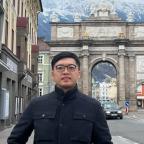
| Molecular property calculations have long been a cornerstone of computational chemistry, providing invaluable insights for experimental work. Among these properties, nuclear magnetic resonance (NMR) shieldings play a crucial role in characterizing chemical environments. Conventionally, these calculations rely on the often tedious derivation and implementation of the analytical form of the energy derivative. On the other hand, the energy derivative can be carried out in a numerical manner. In… Read More |
Announcing the Q-Chem 6.1 Release | |
| July 10, 2023 | |
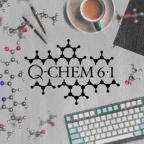
| Q-Chem is pleased to announce the release of Q-Chem 6.1. A variety of new features have been added, including force decomposition analysis, improvements to our new geometry optimizer, vibronic circular dichroism (VCD) spectra, decompositions of vibronic spectra, PCM solvent effects for nuclear-electronic orbital (NEO) calculations, RI-CC2-EOM-SF, EA, and IP, and many more! … Read More |
Q-Chem Webinar 69: ADC for Electron Detachment and Attachment (Wormit Award) | |
| June 19, 2023 | |
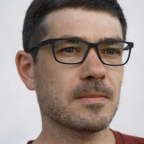
| Quantum-chemical methods based on Algebraic Diagrammatic Construction (ADC) theory have been around for more than 40 years. They are based on perturbation theory and have served as a basis for a number of further developments such as, e.g., the very successful core-valence separation (CVS) approximation for the description of processes involving core electrons, as well as complex absorbing potentials (CAP) for the description of unbound electronic states. ADC methods offer a set of… Read More |
Q-Chem Webinar 68: Orbital optimized density functional theory for core-level excited states and applications to molecular symmetry breaking | |
| May 11, 2023 | |
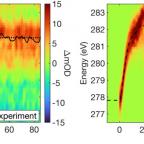
| Electronic excited states with singly occupied inner shells are challenging to model with traditional linear response methods like time dependent density functional theory (TDDFT), due to lack of core-hole relaxation. State specific orbital optimization (OO) ameliorates this issue, but OO-DFT has been historically challenging on account of difficulties in converging to the desired excited state solution.… Read More |
Q-Chem Developer Felix Plasser Awarded EuChemS Walter Thiel Award | |
| April 2, 2023 | |

| Congratulations to Q-Chem developer Felix Plasser, who has been awarded the EuChemS Walter Thiel Award in Computational and Theoretical Chemistry! This award is recognizes the exemplary scientific contributions of young scientists. Felix is recognized for his work in computational photochemistry and methods development, particularly his work with excited-state methods. Along with his long list of accomplishments (including the development of several novel computational approaches, many… Read More |
Q-Chem Developer Thomas Jagau Awarded 2023 Dirac Award | |
| February 16, 2023 | |
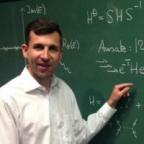
| Q-Chem is very pleased to congratulate Thomas Jagau on his receipt of the prestigious 2023 Dirac Medal! The Dirac Medal is awarded annually to an outstanding theoretical or computational chemist under 40 who has made significant contributions to the field of quantum chemistry. He is well-known for his groundbreaking development of non-Hermitian quantum chemistry methods. As a prominent Q-Chem developer, he has also made many valuable… Read More |
Q-Chem Developer Debashree Ghosh Awarded 2022 Walter Kohn Prize | |
| December 15, 2022 | |
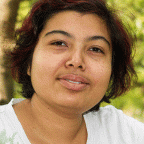
| Q-Chem is pleased to congratulate Debashree Ghosh on being awarded the 2022 Walter Kohn Prize! She is recognized for her groundbreaking achievements in applications and development of methods for strongly correlated materials and complex biological systems. Her ongoing research focuses on modeling photophysical processes, and her work has significantly advanced quantum chemists' ability to study these difficult… Read More |
Q-Chem 6.0.2 Is Released | |
| December 13, 2022 | |
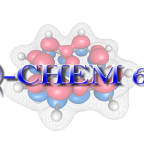
| Q-Chem is pleased to introduce our latest release, Q-Chem 6.0.2. It includes several bugfixes and improvements to the recent 6.0 release. For a full list of updates, fixes, and resolved issues please review the 6.0 changelog here. Any of our customers who have purchased Q-Chem 6.0 can upgrade to 6.0.2 for free. Upgrade your copy of Q-Chem here! If you haven't bought 6.0 yet, why not give it a test run? Customers who… Read More |
Q-Chem's 2022 Holiday Sale! | |
| November 1, 2022 | |

| Happy holidays! This year, we're combining Q-Chem's traditional November and December sales events for double the holiday cheer! A 12% discount will be applied to all license orders and license upgrades placed directly with Q-Chem before the end of December 2022. (Please note: This sale does not apply to reseller sales.) |
Call For Nominations: 2025 Michael Wormit Award |
| October 9, 2024 |
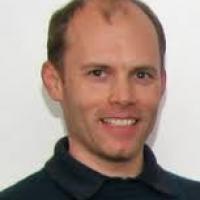
|
Q-Chem is now accepting nominations for the 2025 Michael Wormit Award! This award recognizes excellence in the development of new methods and algorithms in the area of electronic structure… Read More |
Call for Nominations: 2025 Nick Besley Award |
| October 9, 2024 |
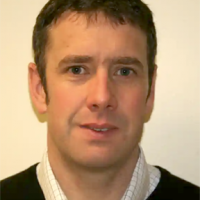
|
Q-Chem is now accepting nominations for the 2025 Nick Besley Award! This annual award recognizes excellence in the development or application of new methods for computational spectroscopy… Read More |
2024 Nick Besley Award Webinar Now Available! |
| September 30, 2024 |
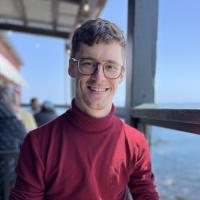
|
Advancements in synchrotron and tabletop light sources have made the study of core-level photochemistry in the x-ray regime more accessible, providing unprecedented insights into the interplay of… Read More |
Q-Chem Webinar 76: Q-Cloud |
| September 12, 2024 |

|
Q-Chem is pleased to announce that our next webinar, which will focus on our new Q-Cloud product for running Q-Chem on AWS cloud infrastructure, will be to be presented by members of the Q-Chem… Read More |
Q-Chem 6.2.1 Release |
| September 3, 2024 |
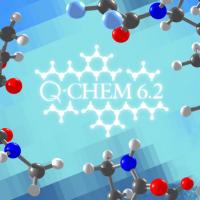
|
Q-Chem is pleased to introduce our latest release, Q-Chem 6.2.1. It includes several bugfixes and improvements to the recent 6.2 release. For a full list of updates, fixes, and resolved issues,… Read More |